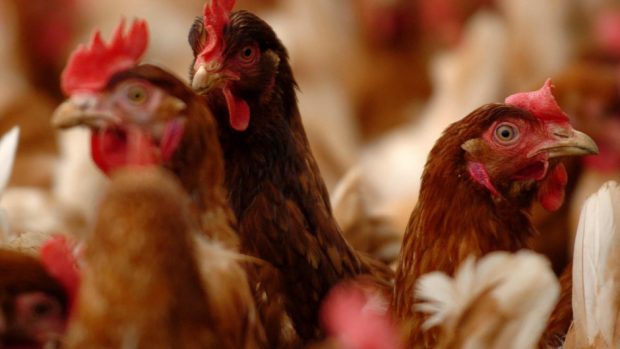Scottish poultry farmers and bird keepers will be able to let their birds outside again from the start of March provided they follow enhanced biosecurity measures to reduce the risk of bird flu.
Rural Economy Secretary Fergus Ewing announced new restrictions for producers, which will remain in force until the end of April.
An avian influenza protection zone, which requires all birds to be housed indoors, is in place until the end of this month.
It was introduced in December last year following outbreaks of the highly pathogenic H5N8 strain of avian influenza in parts of the UK. One case of the low pathogenic H5N1 strain was found in Dunfermline last month.
“We do not expect the risk of H5N8 to reduce any time soon, which is why we are extending the prevention zone until the end of April,” said Mr Ewing.
Scotland’s chief veterinary officer, Sheila Voas, said: “Keepers should start to think about steps they can take now to provide the best biosecurity that they can to protect birds let out on February 28. This could include keeping your range clear of wild birds, and where possible decontaminating the range. You should also discuss your arrangements with your private vet, who will be best placed to provide specific practical advice on reducing the risk of infection.”
Recommended biosecurity steps include: making sure that birds’ feed and water can’t be accessed by wild birds; avoiding transfer of contamination between premises by cleansing and disinfecting equipment, vehicles and footwear; reducing the movement of people, vehicles or equipment to and from areas where poultry or captive birds are kept; implementing effective vermin control around buildings where poultry or captive birds are kept; and providing wash facilities or dips containing approved disinfectant, at the right concentration, at key points such as farm entrances and entrances to bird houses.
NFU Scotland’s poultry policy manager, Penny Johnston, said although free-range producers would be nervous about letting their birds outside again, they would welcome the option to do so and retain their free-range status. This status was at risk of being lost if housing was required beyond February 28.
British Veterinary Association Scottish branch president, Grace Webster, said: “We would strongly emphasise the need for bird keepers who allow their birds outside after February 28 to maintain the highest standards of biosecurity, heeding the advice of government, and to remain vigilant to signs of the disease. Any suspicion of Avian Influenza should be reported to the Animal Plant and Health Agency immediately.”
